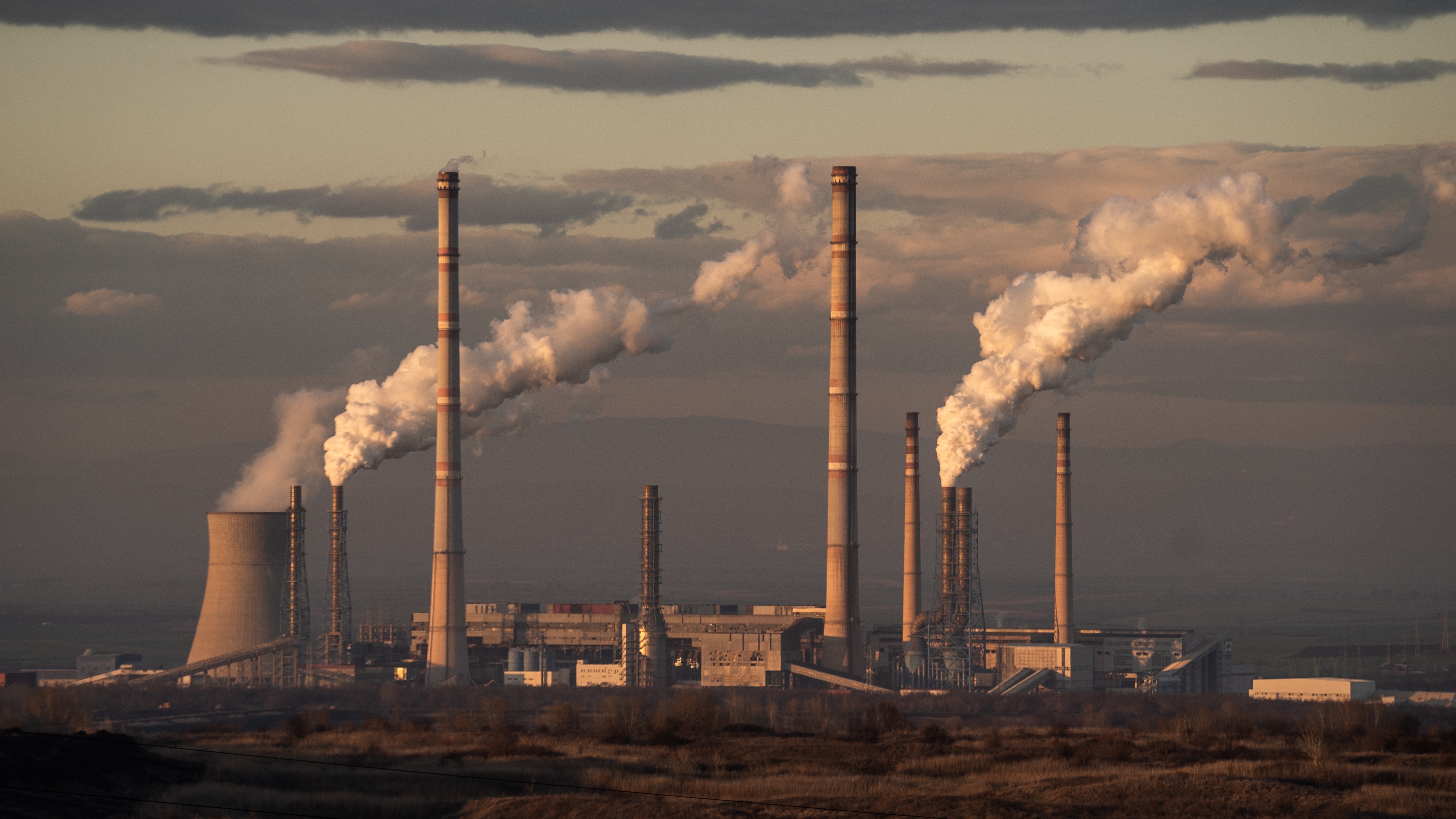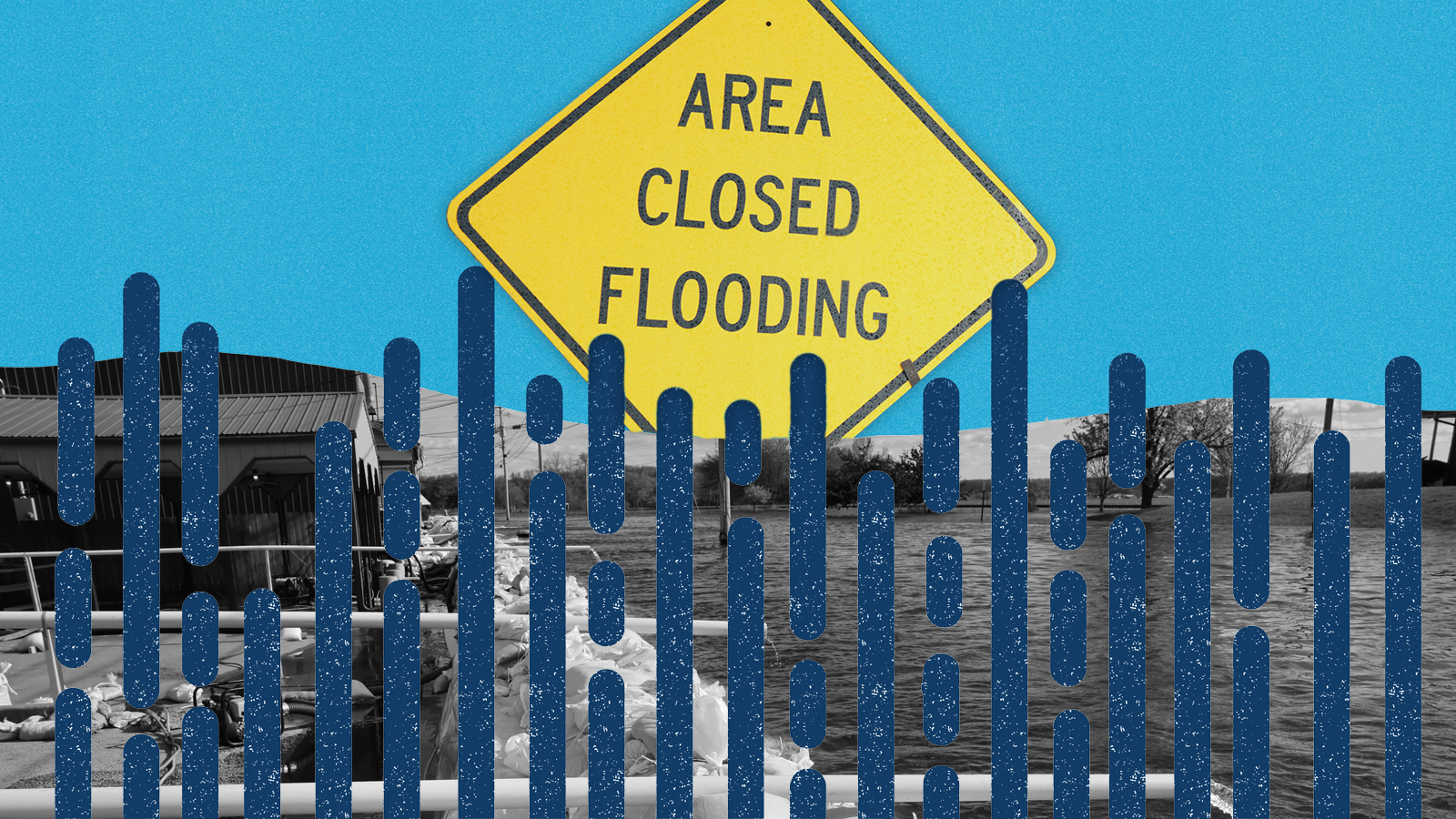‘Climate policy is a new front in the US culture wars’
Your digest of analysis and commentary from the British and international press

A free daily email with the biggest news stories of the day – and the best features from TheWeek.com
You are now subscribed
Your newsletter sign-up was successful
1. The bad economics of fossil fuel defenders
Paul Krugman in The New York Times
on climate denial
Against a backdrop of “unprecedented heat waves, huge forest fires, severe drought in some places and catastrophic flooding”, it seems some Republicans in the US have “toned down their climate denial – in some cases pretending that they never denied the science in the first place”, writes Paul Krugman in The New York Times. But they’ve pivoted to a new line of defence: “the immense economic damage that, they claim, will result if we try to limit emissions of greenhouse gases”. There is little evidence to support their assertion – and it’s become “painfully obvious that politicians opposing climate action aren’t arguing in good faith”, says Krugman. Indeed, for the GOP, “climate policy has become a front in the culture war” propped up by a belief from those on the right that “real men disdain renewable energy and love burning fossil fuels”.
The Week
Escape your echo chamber. Get the facts behind the news, plus analysis from multiple perspectives.

Sign up for The Week's Free Newsletters
From our morning news briefing to a weekly Good News Newsletter, get the best of The Week delivered directly to your inbox.
From our morning news briefing to a weekly Good News Newsletter, get the best of The Week delivered directly to your inbox.
2. Can someone fill in Dominic Raab about the news? He only watches it on catchup
Marina Hyde in The Guardian
on befitting behaviour
“What is the role of foreign secretary in the era of Global Britain? News that Dominic Raab was spotted lounging on a beach in Crete on the day Kabul fell certainly sends a message,” writes Marina Hyde in The Guardian. In many ways “Raab’s behaviour was entirely befitting of the revised requirements of his position,” she continued. “The role of foreign secretary in Global Britain does feel like it might involve drinking a beer somewhere nice, as your inflatable makes its lazy progress across the pool.” Indeed, “perhaps this instinctive grasp of what was required is why ‘Westminster watchers’ have spent a lot of the past year farting on about Dominic Raab being one of the quiet success stories of Boris Johnson’s government.”
A free daily email with the biggest news stories of the day – and the best features from TheWeek.com
3. The hypocrisy of ‘progressive’ middle-class drug users is ruining lives
Harriet Sergeant in The Telegraph
on a ‘murderous system’
“Progressive millennials protest vehemently about racism, pronouns and the environment but have a blind spot when it comes to the odd line of coke,” writes Harriet Sergeant in The Telegraph. Indeed, she says, the “explosion of gang violence is directly related to the drug trade. Teenage boys joining gangs and fighting each other is as old as time itself. But drugs have transformed what should be a passing phase of adolescence into a murderous system that sucks in young boys, fuels violence and ruins lives,” Sergeant writes. “Meanwhile middle-class drug users attend protests, call themselves activists and vibrate with rage on social media. If they really want to transform lives, they could do worse than turn down that line of coke on a Saturday night.”
4. Cutting pay for remote workers is a risky move
Sarah O’Connor in the Financial Times
on post-pandemic pay
“The pandemic created a tempting opportunity for many urban workers who found themselves working from home: to move somewhere cheaper and take their big city salaries with them,” writes Sarah O’Connor in the Financial Times. That sounds fine in theory, but in post-pandemic practice, O'Connor says, “there is a possibility the dream will evaporate. If you move to cut your living expenses, your employer might cut your pay.” But for an employer to take this approach it could be “risky”, she writes. “As more people work from home permanently, it crystallises the fact that some are paid differently for the same work. It also means pay cuts for some workers whose jobs have not changed.”
5. What the media gets wrong about incels
Naama Kates on UnHerd
“The psychological backdrop to Britain’s first mass shooting in over a decade is, of course, deeply disturbing,” writes Naama Kates on UnHerd. And in regards to “the way much of the media has covered this tragedy, the matter is all but settled: Davison was an incel, another young man driven to violence by a nefarious online movement that breeds terrorists,” she writes. Yet, it seems that the “incel angle” has been focused on “to the exclusion of everything else” in a way that feels “intellectually dishonest”, she suggests. Indeed, “we seem to have lost sight of the perpetrator behind this awful attack, preferring instead to blame the atrocity on incel culture. That may be because it is “more comforting, after all, to seize upon a simple explanation – in this case that incel culture is to blame – than accept that the situation is more complex”, Kates says.
-
 Buddhist monks’ US walk for peace
Buddhist monks’ US walk for peaceUnder the Radar Crowds have turned out on the roads from California to Washington and ‘millions are finding hope in their journey’
-
 American universities are losing ground to their foreign counterparts
American universities are losing ground to their foreign counterpartsThe Explainer While Harvard is still near the top, other colleges have slipped
-
 How to navigate dating apps to find ‘the one’
How to navigate dating apps to find ‘the one’The Week Recommends Put an end to endless swiping and make real romantic connections
-
 Woman accidentally puts nan in washing machine
Woman accidentally puts nan in washing machineTall Tales And other stories from the stranger side of life
-
 Bangladesh dealing with worst dengue fever outbreak on record
Bangladesh dealing with worst dengue fever outbreak on recordSpeed Read
-
 Glacial outburst flooding in Juneau destroys homes
Glacial outburst flooding in Juneau destroys homesSpeed Read
-
 John Kerry in Beijing: how red China is turning green
John Kerry in Beijing: how red China is turning greenfeature Climate talks set to resume between Washington and Beijing this week
-
 Study: Nearly 62,000 people died in 2022 European heatwave
Study: Nearly 62,000 people died in 2022 European heatwaveSpeed Read
-
 Arizona limits construction in Phoenix area amid groundwater shortage
Arizona limits construction in Phoenix area amid groundwater shortageSpeed Read
-
 How bad are this year's Mississippi River floods?
How bad are this year's Mississippi River floods?Speed Read "Everybody's plan along the river has been put to the test"
-
 Sudan evacuation: has Foreign Office learnt the lessons from Afghanistan?
Sudan evacuation: has Foreign Office learnt the lessons from Afghanistan?Today's Big Question Failings of chaotic withdrawal from Kabul prompt return of foreign secretary and airlift of Britons from Khartoum